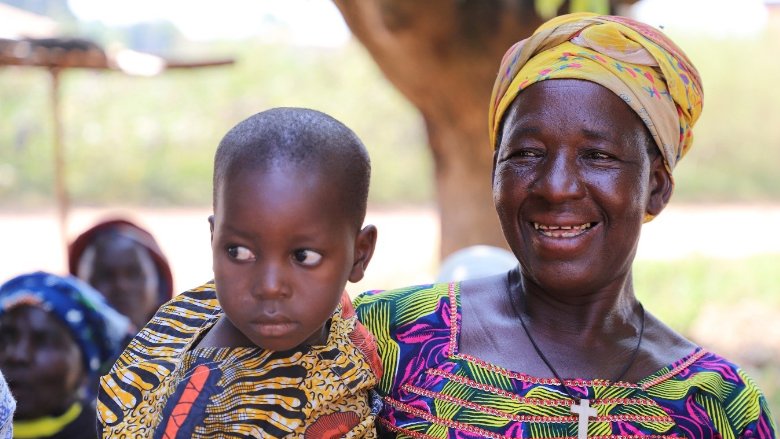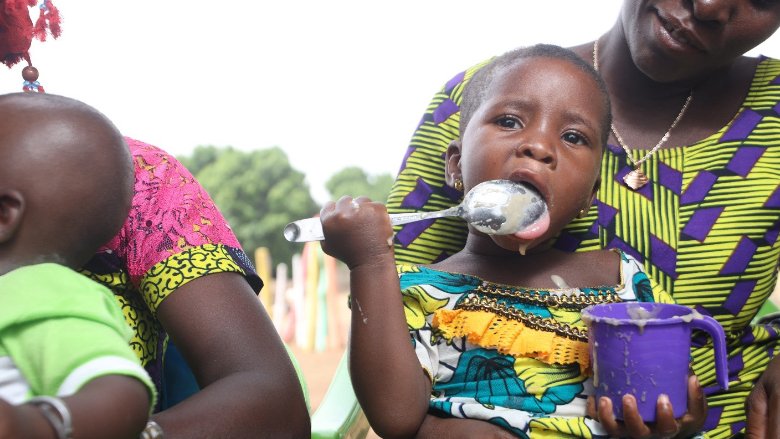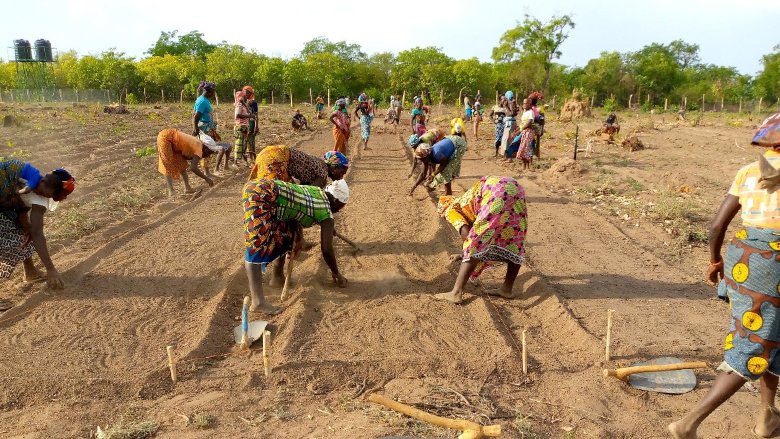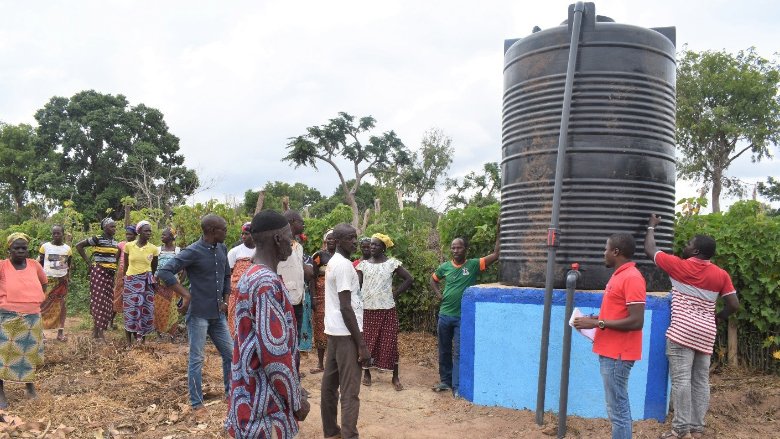“If malnutrition is a sign of poverty, then our women have partially conquered it in Kpafonon,” says a clearly pleased Solo Laga, a retired teacher. In this village, Solo has seen generations of children fed on Mimintchin (sauce for the poor), as it is known in Senufo, the local language. Anemic, deformed, or suffering from other malnutrition-related diseases, many children did not survive.
The “sauce for the poor” - a distant memory!
The diet in the Poro and Bagoué regions of northern C?te d’Ivoire lacks variety and consists mainly of maize and yams. “Until recently, we were evacuating at least three children a week to the hospital because of blood problems, but since we started cultivating the garden, everyone is in good health,” enthuses Awa Koné, president of the Bêtikana cooperative in Kpafanon.
Since 2019, eating habits have changed: households regularly consume carrots, zucchini, onions, tomatoes, cabbage, eggplant, sweet potatoes, and eggs produced by the cooperative’s 56 members.
Financed by the World Bank through the Japan Social Development Fund, the Support to Nutrition Sensitive Agriculture and Capacity Development of Small and Marginal Farmers (ASNAP) project allows vulnerable rural populations to have access to a rich, balanced diet and enables women to empower themselves through the cultivation and sale of organic vegetables.
The project rehabilitated an abandoned hydraulic pump to supply water to a village farm where women from the Bêtikana group and agricultural technicians from the National Agency for Agriculture and Rural Development (ANADER) work side by side to produce organic vegetables of sufficient quality and quantity for local consumption and surrounding markets. Better still, the cooperative provides free vegetables to the village school canteen, so that school children can enjoy balanced, vitamin-rich meals.






